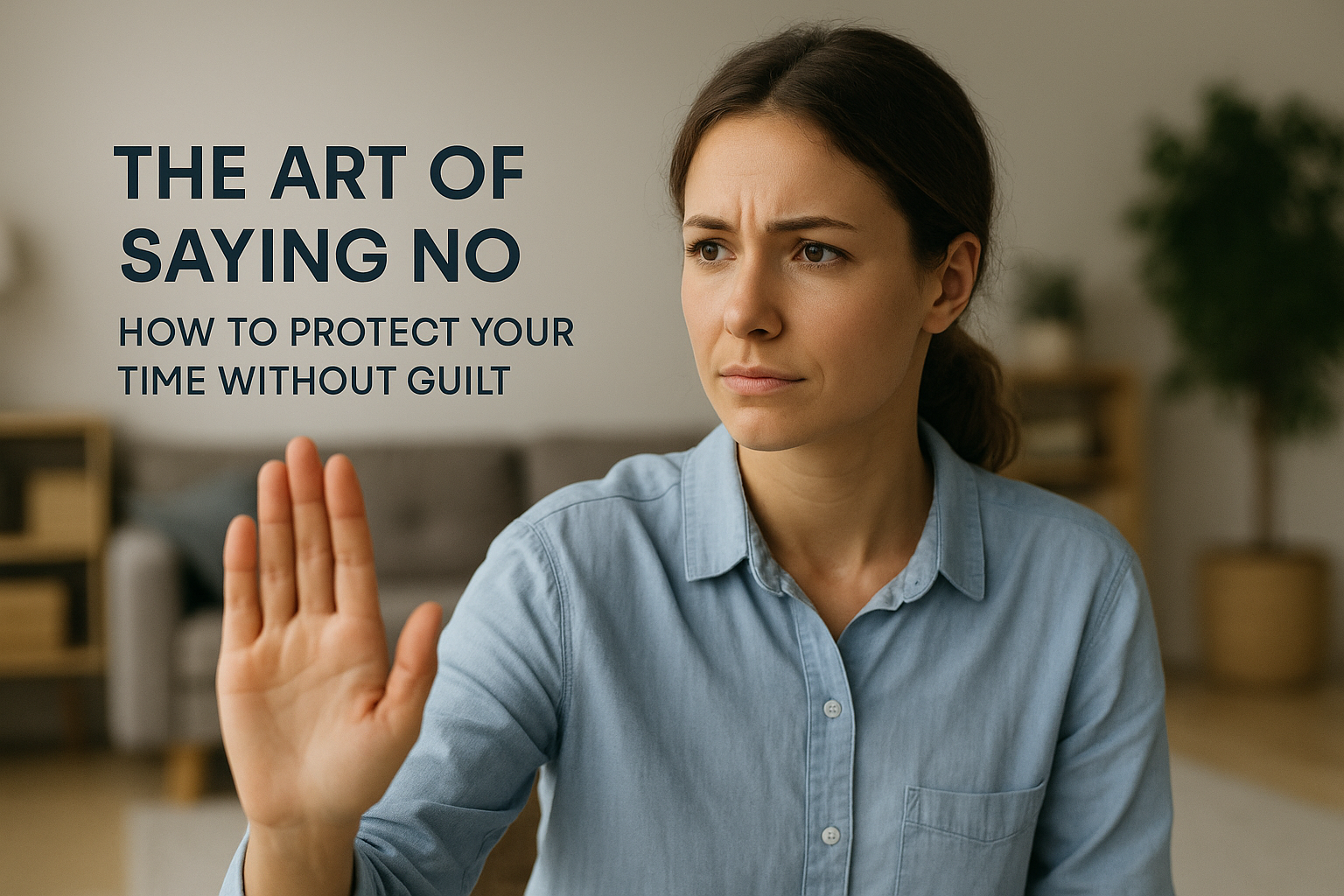Saying “no” can feel uncomfortable — even scary. You don’t want to disappoint others, damage relationships, or seem unhelpful. But here’s the truth: every time you say “yes” to something that doesn’t serve your priorities, you’re saying “no” to something that does.
Learning to say no is one of the most powerful ways to protect your time, energy, and focus — and it doesn’t have to come with guilt.
This article will help you understand why saying no is essential, when you should say it, and how to do it with clarity and kindness.
Why Saying No Matters
You have limited resources: time, attention, energy. When you give those away too freely, you burn out, lose focus, and feel resentful.
Saying no helps you:
- Stay aligned with your goals and values
- Prevent burnout and overwhelm
- Maintain boundaries in personal and professional relationships
- Focus on what really matters to you
- Build confidence and self-respect
When used wisely, “no” is a powerful act of self-care and clarity.
Common Reasons We Struggle to Say No
Understanding the root of your hesitation helps you overcome it.
You might fear:
- Hurting someone’s feelings
- Being judged as selfish or lazy
- Missing out on opportunities
- Conflict or confrontation
- Damaging your reputation
But saying yes to everything leads to exhaustion — and ultimately, lower-quality work and relationships.
1. Know Your Priorities
When your goals and values are clear, it’s easier to recognize what deserves your yes.
Try this:
- List your top 3 priorities this month
- Ask: Does this request align with those?
- If not, consider saying no
Clarity creates confidence.
2. Pause Before Responding
You don’t have to answer immediately. Buy yourself time to consider the request.
Say:
- “Let me check my schedule and get back to you.”
- “I want to think about it before I commit.”
- “Can I let you know by tomorrow?”
This simple pause helps you respond — not react.
3. Use a Simple, Direct “No”
You don’t need to over-explain. A respectful, clear no is enough.
Examples:
- “Thanks for thinking of me, but I’ll have to pass.”
- “I’m not available for that right now.”
- “I’m focusing on other priorities this week.”
Keep it short and kind. Avoid apologizing for your boundaries.
4. Offer an Alternative (If Appropriate)
Sometimes, you want to help but can’t take on the full request. Offer a different form of support.
Say:
- “I can’t join the meeting, but I’d be happy to review the notes afterward.”
- “I’m not available to volunteer, but I can share your post.”
Only offer what you can genuinely handle.
5. Use “I” Statements
This reduces defensiveness and helps you own your decision.
Instead of: “You’re asking too much.”
Say: “I don’t have the capacity to take this on right now.”
It keeps the tone respectful and grounded in your reality.
6. Practice in Low-Stakes Situations
Start by saying no to small things — a newsletter you don’t read, a social invitation you’re not excited about.
The more you practice, the easier it becomes.
You’ll learn that most people respect your honesty — and those who don’t may not belong in your inner circle.
7. Let Go of Guilt
Feeling guilty doesn’t mean you’ve done something wrong. It often means you’re doing something new — like honoring your limits.
Affirm to yourself:
- “It’s okay to put my needs first.”
- “Saying no helps me show up better in what matters most.”
- “I don’t owe anyone constant access to my time.”
Guilt fades. Growth remains.
8. Celebrate Your “No” Wins
Every time you say no to something that doesn’t serve you, you’re saying yes to what does — rest, clarity, focus, freedom.
Track your boundaries:
- Write down when you say no
- Reflect on how it felt and what it created space for
- Notice how your stress or resentment decreases
Celebrate your progress. You’re not being rude — you’re being real.
Saying No Is a Skill — And a Gift
The ability to say no with confidence is essential for anyone who wants to live intentionally. It’s not about being closed off — it’s about protecting your energy so you can say yes to what truly matters.
You don’t need permission to set boundaries. You don’t owe explanations for protecting your peace. You just need the courage to speak your truth — kindly, clearly, and consistently.
Because every “no” to what drains you is a “yes” to a better you.
